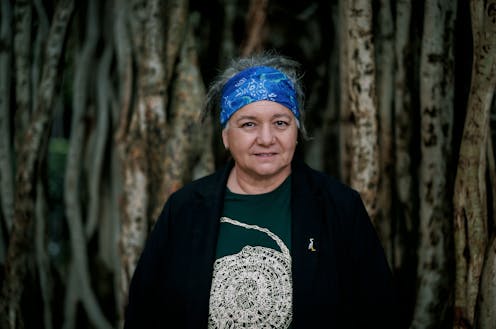Melissa Lucashenko busts colonial myths and highlights Indigenous heroes
- Written by Tamika Worrell, Lecturer in the Department of Indigenous Studies, Macquarie University, Macquarie University

This article mentions ongoing colonial violence towards Aboriginal and Torres Strait Islander people.
Melissa Lucashenko’s latest novel, Edenglassie[1], takes the reader on a journey through magnificent and heartbreaking dual narratives set five generations apart. The reader steps through time, and weaves back and forth between the early 19th century and 2024, on the precipice of these stories possibly meeting.
Edenglassie is written with an intrinsic understanding of Country as kin. Both Country and Ancestors remind the reader of the lessons Country has guided mob by:
Patience. You are not the centre on which the world turns
Alongside this, we see the continual disturbances of Country and kin caused by colonial violence and unrest – through kidnapped children and massacres.
Review: Edenglassie – Melissa Lucashenko (UQP)
Lucashenko gifts us with characters impossible to not to invest in. They are perfectly whole and lovable, with minor flaws. As an Aboriginal woman, I found them all relatable – I could picture various Community members just like them.
Read more: With wit and tenderness, Miles Franklin winner Melissa Lucashenko writes back to the 'whiteman's world'[2]
It’s Granny Eddie’s world
The first character we meet is Granny Eddie, who has been hospitalised after a fall. She is as stubborn as she is wise, at the ripe age of 103. Her growl expresses that familiar balance of hard-to-swallow truths that make you realise when you’re wrong, even if you want to argue. Her grandaughter Winona is on the receiving end of it – and knows when to shut her gob “like a real Goorie must do when being growled by her elder”.

















